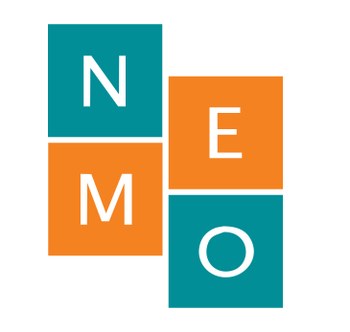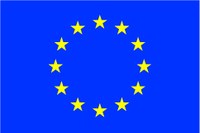NeMo 2019-1-IT02-KA201-063340

The project foresees a wide European research on pre-linguistic interactions, ICT tools to enhance ASD children's access in ECEC services, ECEC monitoring systems and ECEC curricula.
Through a Joint Staff Training Event, the participants will acquire the necessary competences to implement the pilot versions of ICT tools and methodologies to enhance the access of ASD children in ECEC services.
By involving local ECEC services in the testing phases and by collecting feedbacks from ECEC teachers, NeMo partners will realize the following outputs:
1) Teacher Training Courses on Pre-linguistic observation and early ASD evaluation
The output is an OER training course created to prepare pre-primary school teachers to recognize clear signs of potential impairments in the social skills during pre-linguistic interactions between caregivers and infants (9-18-month-old), and will develop in-service trainings on monitoring practices, focusing on the monitoring of children’s experience of ECEC.
The map of signs of non-typically developing embodied interaction that we will be producing can be used for screening, but also to support early diagnosis, together with the classic Early Screening of Autistic Traits questionnaire (ESAT), Modified Checklist for Autism in Toddler (M-CHAT), Parents’ Evaluation of Developmental Status (PEDS) and Quantitative Checklist for Autism in Toddlers (Q-CHAT).
2) European Report on Frameworks and Recommendations for ECEC 0-6 Monitoring system
implementation
The Output is a report at European level highlighting:
- Comparative reports between split and unitary Monitoring ECEC systems (European level);
- Best practices and tools for monitoring purposes in ECEC systems;
- A proposal for a unified 0-6 monitoring system, including methodologies for the observation of prelinguistic interactions and tools for ASD children inclusion and development in ECEC environments;
- Recommendations for national policy reforms concerning the "split countries" involved.
3) ICT tools for children with ASD
A compact framework of ICT learning tools and methodologies developing a common pedagogical system. It is built up for ECEC teachers and will be composed by the following elements: educational goals, methodology, learning activities, evaluation methodology, and guidance for teachers.
4) 0-6 Teachers curricula guidelines
The 0-6 curricula will consist in an innovative guideline including a proposal for a unified ECEC teacher curriculum for the whole period covered by ISCED-0.
The curricula will be delivered through a comparative report among the European countries, collecting the main features related to the professional development and the subjects to be taken into account into an ECEC curriculum. Best practices and tools will be highlighted.
The instruments, the tools, the methodologies and the work on monitoring systems developed in the other outputs will be included into the ECEC curriculum proposal, in order to innovate the European ECEC teachers’ curricula beyond the unitary/split system they belong to.
The local implementation and the European level of the dissemination will allow the project to reach the following impact:
- Enhance monitoring service quality in Europe;
- Spread the best practices of monitoring;
- Most effective instruments and tools for monitoring child development outcomes;
- Tools to allow ASD children to get access to ECEC services properly;
- Innovative pre-linguistic interactions observation methodologies.
- Support curriculum guidelines developments at national levels, in order to successfully nurture children’s cognitive and socio-emotional development, thereby maximising their gains from ECEC attendance.
The Outputs will be exploited by Universities for their master’s degrees and by European ECEC services after the end of the project. The Outputs will encourage European policy makers in charge for domestic ECEC systems to widen their monitoring and curricula guidelines into a unitary perspective including the innovative methodologies and tools developed by the project.


The European Commission's support for the production of this publication does not constitute an endorsement of the contents, which reflect the views only of the authors, and the Commission cannot be held responsible for any use which may be made of the information contained therein.